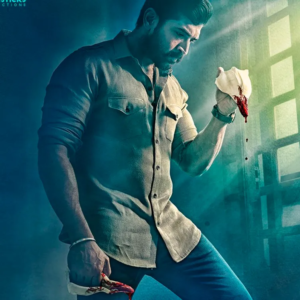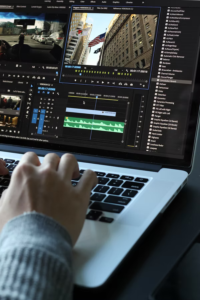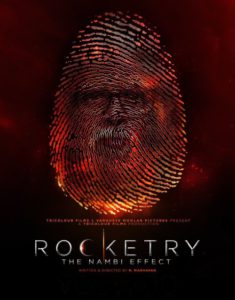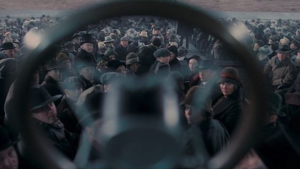A film editor gives life to a film. Are you planning to become a film editor? Then you have come to the right place. Keep reading to know everything you need to know about becoming a film editor.
What is the role of a film editor?
Having a heart of an artist and the mind of a system makes you a successful film editor. Enormous amounts of the raw film (unedited audio and video footage) are gathered by the editors to analyze what goes into the film and what gets discarded to make a good presentation of the movie concept.
This editing process will make or break the movie. For this reason, the editor will watch and rewatch the raw footage several times and select the footage to be used. They will then organize the footage based on the scenes and use video-editing software to assemble the footage into a well-made movie.
What is a film editor career like?
Usually, the film editors work from a studio or office environment. All the work is performed in the computer systems, and the editors are provided with video editing software. The work lasts from 8 to 10 hours a day when cutting and editing a project with the director. The film editor has to comprehend how to narrate a story using a bunch of footage. The story can be anything from feature film to branded or commercial content.
The film is crafted by the editor before it is sent to the sound team. Oftentimes the movie is made inside an editing room more than the sets themselves. The storylines could be increased or cut short. Scenes shot for a particular scenario could be used in a completely different context. The characters are shaped to cover the anticipated storyline by editing.
Duties of an editor
The film editor generally offers a fresh set of eyes and rectifies mistakes in the film. somefamous directors such as Martin Scorcese, Spike Lee work with the same editors again and again. Consider it a blessing if you find a director that wants to work with you on many projects. This will bring stability to the life of a film editor. Otherwise, you have to keep on sending resumes and portfolios to find work.
Spike Lee’s editor is famous for his editing style. Having an aesthetic and unique editing style will settle your life as an editor. Just like the director’s duties, film editors have to spend maximum amounts of their time in editing and perfecting the scenes.
Even the assistant directors have to have strong computer editing skills to finish their duties. Mostly the work by the editor has to be done alone. Because of this, the editor’s duties can get lonely sometimes. You have to be ready both mentally and physically to take up these duties.
We all know the criticism that the famous television series Game of Thrones faced in its last season due to poor editing. The IMDB rating of the series dropped from the first position to the second due to tiny errors. This is why a good editor is crucial for any film/series to succeed.
This what an editing process looks like:
- The raw footage is imported into the editor’s computer.
- The media are then transcoded into workable data(Data translation is done).
- All footage is reviewed at least once before ordering in sequence.
- The organization of scenes takes place now according to the storyline.
- A raw assembly cut of the film is generated.
- This rough cut is now assembled in order.
- The quality cut is adjusted finely.
- Finally, the picture lock will be set.
In the last three stages, the editing is done based on the instructions from the producer, director, and other people involved. These change the major elements in the film. In the final stage, all that the film editor has to do is cut down on scenes and ensure the smooth flow of the storyline in the movie. After the picture lock is set, any further changes will be expensive.
Since there is a substantial increase in the online platforms for the films, such as streaming sites, the requirement for film editors is also expected to rise. If the budget is huge, an assistant editor will be hired to help in producing results swiftly.
Steps to become a film editor
Now that you have understood the life of film editors and their duties, let us dive into the steps to becoming one.
Prerequisites
Although there are few film editors without a proper educational background most of the time, to become a successful editor, you will need to have a degree in fields related to broadcasting like communications. You might be feeling discouraged by this fact because of the pandemic situation we are living in. But worry not, there is an innumerable number of websites like Nashville Film Institute that offer cinematography and video-editing courses online. If you are a beginner, it is better to familiarize yourself with as many types of software as possible.
Choose the right program and course for your studies in film editing. Decide on this course based on the career direction you want to shine in. Invest in a computer system that is compatible with most of the video-editing software. It is usually a better idea to pick a software-heavy course as it lands you with many opportunities.
Skills to develop
If you want to become a professional film editor, you must work on the following skills.
- Problem-solving
The most crucial skill an editor must possess is to solve problems quickly. The film editor’s work is filled with challenges in every step. For example, the actor’s performance might not be portraying the required emotions and feelings, or the main storyline is not displayed in the correct flow. In these cases, it is the editor’s job to rectify the performance through edits while readjusting the scenes to match the storyline.
- Communications
The main role of the film editor is to convert the director’s visions into actual work. To do this, good communications are a must. If the editor is not able to communicate with the director or the producer properly, then the finished product will have to go through many changes, which cost money and time.
On the other hand, apart from understanding instructions, an editor should be able to convey his/her creative thought to the directors or producers. Doing so could increase the overall quality of the movie without missing out on good ideas.
- Understand how movies are edited!
Watch as many movies as possible and look for visuals and sound cues that enhance the scenes. Analyze the timing and pacing of each shot. Pay close attention to how each scene slides smoothly into the next, as it will be your duty after you become an editor.
If you are not able to grasp anything, research a little by studying books on film editing and get back to watching. Understand how long each scene lasts and how a picture is helping in developing the storyline or characters. Finally, search for reviews for these films you have watched and read the critics’ reviews to enhance your critical eye.
- Think about the big picture
Whenever an editor is watching the raw footage, he/she should always be thinking about the final product. By doing this, the editor will identify which shot goes where and a correct sequence is produced. This sequence will affect the entire film and helps it achieve the required emotional and cinematic impact.
Practice making decisions constantly and quickly to develop this skill. Without quick decision-making, you will take additional time editing the raw bits, which will increase the production time of the movie.
- Pay attention to the details
A film editor has to go through every frame shot by the videographer. This task became even more challenging with the current digital world. With highly equipped machines, the videos are shot innumerable times and stored in the cloud. These numbers could mean thousands of hours in front of the screen. All these videos have to be looked at and formatted by the editor. The editors should break this raw footage to a manageable length and order them in sequences.
Missing a single valuable frame could drop the quality of the film. That single missed frame could be the highlight of the film we never know. Because of these reasons, the editors have to be attentive and make decisions about cutting the shots even in microseconds.
- Increase your connections
Work with your friends and colleagues on small projects to understand your strengths and weaknesses. Let everyone in your circle know that you are looking for film editing opportunities. If you have gone to a film school, start a few independent projects and publish them to gain recognition. Network as much as possible with the people in the film industry to make new connections. These connections will help you settle down in the film industry tremendously.
Gaining experience
Now that you have understood all the skills you need in this career choice, it is time to develop some experience. You can follow these steps to gain experience.
- Volunteering
A genuine educational course will give you a basic idea and technical foundation but no practical experience. Lack of real experience will cause you many troubles when you first start working. The more experience you gain, the higher are the chances you get landed in your dream job.
Participate in all the events and clubs related to film editing. You can look for local production jobs online and apply for these too. Do not worry about working without getting pain. It is the experience you should be following.
- Internships
In your early career, you will be spending a considerable amount of time volunteering. In addition to this volunteering work, keep looking for internships with reputed companies. Although volunteering provides you with the required experience, doing an internship in a popular company will introduce you to the culture of the film industry.
Networking plays a crucial role in your desire to get an apprenticeship in a major production company. Some of these internships come with a stipend, while some do not. Nevertheless, work as if you are being paid huge sums and prove your skills. Since you are working for established companies, displaying your talents will only boost your future offers.
Entering the film industry
It is never easy to start a successful career for anyone. In the beginning, it is very difficult to find jobs. During the time of these challenges, your experience and internships come in handy. After years of work, you will develop a reputation in the industry for your skills and commitment. This reputation will help you bag ideal jobs in your future. If you are merely beginning out, here are some tips.
- Find an entry-level job!
After finishing the internship, it is essential to look for paying jobs in the industry. No matter how little they pay and how insignificant the work is, it is necessary to get yourself a paying job in a production company. Promote yourself as much as possible by working these jobs and increase your network by being polite to everyone. Some networks will prove you themselves by landing you with unexpected opportunities. The key is to keep looking and communicating.
- Build a resume
In the olden days, to apply for a film editor job, one needs to have access to expensive and bulky equipment. But with the recent digitalization, all you need is a compatible computer system and some creative skills, which made the editing process much easier and affordable. If you are not able to find jobs to fill your resume, edit your independent projects.
Offer to help your friends by editing their videos. No matter how scrappy and low-stake the gigs are, take them up to enhance your skills. Working on projects will not only build your resume but also allow you to experiment and learn in your weak areas. Either way, by working on building a resume, you will gain job training that you can carry to your professional work.
- Learn techniques of editing
There are several notable concepts that filmmakers rely upon to assemble the footage in the best possible sequences. Similarly, the film editors have to develop their systematic framework style to decide what order to follow, which clips to show and delete, when to show the scenes, and so on. The editors usually rely on design methods similar to any other video editing profession. To create a unique output, film editors have to keep trying multiple variations of the basic methods and keep developing new techniques.
The Kuleshov Experiment: Most of the fundamental concepts in the 21st century are based on the Kuleshov Experiment. Lev Kuleshov is a film editor who experimented by filming an actor’s face with three different objects. A soup, a girl in a coffin, and a cute girl on a sofa were the objects in this experiment. He observed that the viewers associated the actor’s emotion with the object they are portrayed with. When the soup is viewed before the actor, the viewers said that the actor was hungry. When the coffin is in the frame, the viewers assume the actor is sad.
The sequence of the shots in which they are ordered will change the whole impact of the movie. Although this is not the only theory used in film editing, it is one of the most relevant ones. To become a good film editor, you must understand and develop all such techniques.
- Advertise yourself
One strategic plan to promote yourself is to get an IMDB listing. By getting a listing on IMDB, you are expanding your reach. Many potential employers will always refer to this listing before hiring you. Make sure to submit your projects to enter them into the listings. Give all your efforts into these projects that get added to the database. You can simply start your editing services to work on more projects. This will also build up your resume and enhance your skills.
For this purpose, you often have to branch out to different specialized fields. This is because you will not always get to edit videos of the genres that you are good with. Graduation videos, wedding videos, commercial advertisements are somecommon work you get to practice with when you first start your editing services.
- Craft a portfolio
Once you have completed building your resume with all the best work, it is time to craft a portfolio. Designing a winning portfolio is what gets you many job offers. These days numerous applicants are applying for film editor positions. To stand out from all these applications, your portfolio has to be unique and exceptional. While applying, send out your portfolio along with your resume and a sample reel of your work.
Make sure all the work submitted by you is your best work. The reel that you submitted should be relevant to the type of project you are applying for. For example, you are applying to edit a film that is for a sequel of Annabelle, you should not send sample work of an edited love story. Take advice from people who are already placed in the job about your materials attached.
The future
In the beginning, around the year 1980, only one editor was assigned to a film. All the editing and corrections have to be done by a single person, no matter how tedious these edits were. In recent days, due to the increase in technology, a minimum of nine editors are assigned to a film to edit by distributing the work. The demand for film editors is expected to increase even further.
These days the movies are given attention by the audience as a result of the budget to produce these films also increased. Increased budget could only mean stress on the quality of the film, which asks from more editors. You do not need to worry about not being able to find work due to these reasons. If you can work well in teams, then consider yourself lucky to be rewarded with good jobs. Here is how the future of a film editor will look like in a period of five years to a decade.
After five years
Soon after having a five-year career as a film editor, you will find yourself with a good network of contacts, enough editing experience, and increased responsibilities, unlike when you just started. You can even sign a contract for a large production house for several films. By this time, you will be educated with specializations in various fields that are popular in the industry like drama, comedy, commercials, software work, and other genres.
After ten years
By now, you will develop a solid reputation in the industry. You will be rewarded with a healthy paycheck, and the work hours will be reasonable. You can now choose to work in a team or as an individual as you will not have a shortage of offers. Sometimes, film editors will quit editing after ten years and start consulting services for other editors. Your duties will get more extensive in this period. At this stage, you could even be assigned a team of assistant editors for you to lead.
Some famous editors
- Michael Khan is one of the most famous film editors in the industry who worked on popular films like Jurassic Park, Peter Pan, and Indiana Jones & the Temple of Doom.
- Alan Edward Bell is another lead editor who worked on The Hunger Games: Catching Fire, 500 Days of Summer, and many more famous films.
- The great fileShutter Island which won several awards, was edited by Thelma Schoonmaker along with The Aviator movie.
All you can learn from these editors is that to grow as an editor is to work on several projects. You can kick start your film editing career by learning more about the field and enrolling in video editing courses.
















